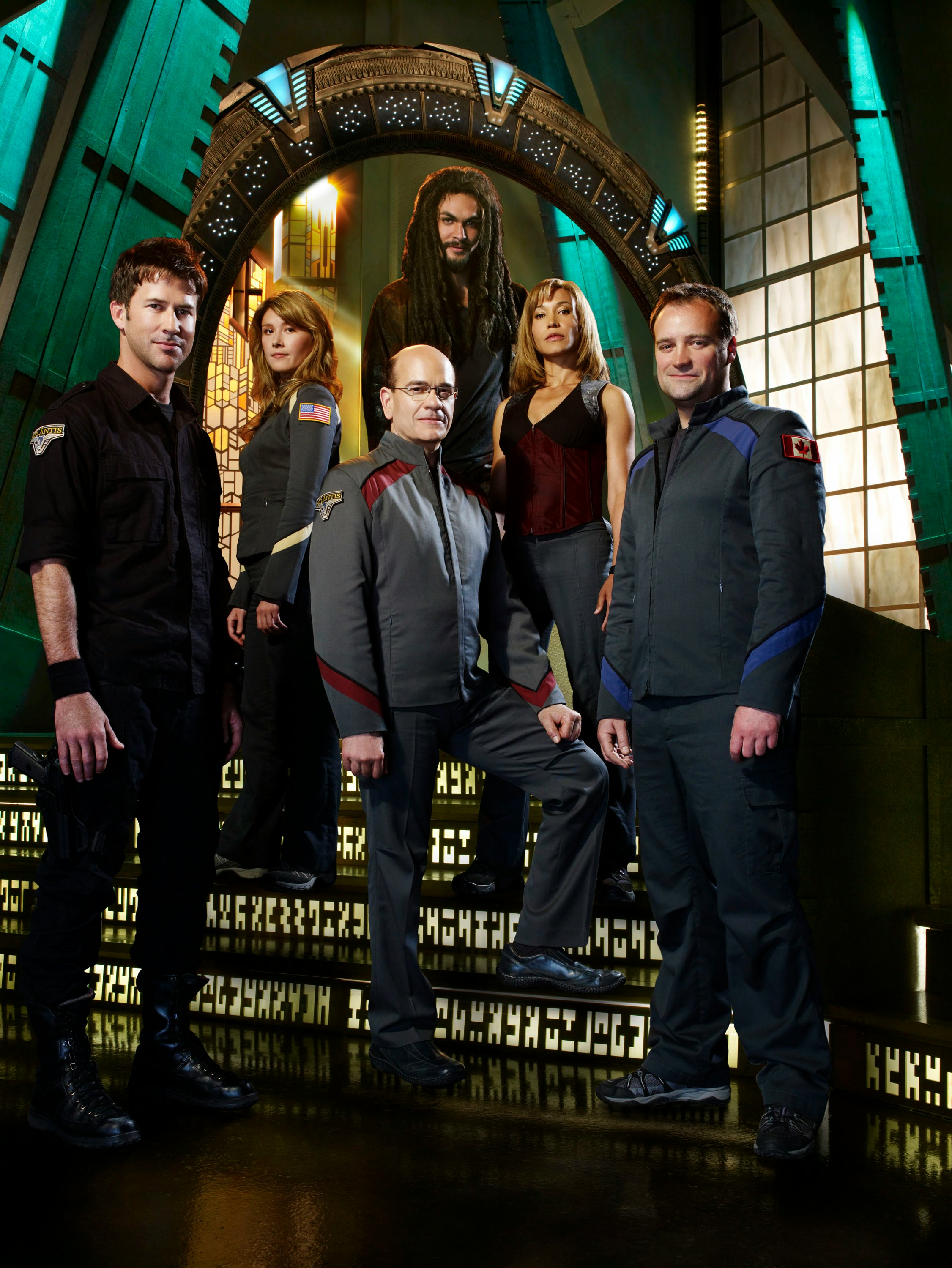
During the 2000s, the Stargate franchise reigned supreme on sci-fi TV. Combining adventure-of-the-week storytelling with a dash of military propaganda, it attracted a loyal audience — in part because Star Trek was in a rare slump. Viewed in hindsight, Stargate’s heyday represents a very different era of the TV landscape. Not just due to its post-9/11 enthusiasm for military interventionism, but in terms of how episodic dramas were structured — and how their fandoms interacted online.
Spinning off from the seventh season of Stargate: SG1 — a sequel to Roland Emmerich’s Ancient Egypt-inspired sci-fi blockbuster Stargate — Stargate: Atlantis (dubbed SGA) remixed a proven formula. Rather than focusing on a team who visit other planets via a Stargate portal on Earth, SGA covers an international mission to the Pegasus Galaxy: A one-way journey to colonize the city of Atlantis, abandoned millennia ago by an advanced alien race.
Led by an American diplomat, this expedition immediately gets tangled up in an interplanetary conflict. Hunted for generations by a vampiric alien race known as the Wraith, the Pegasus Galaxy’s indigenous population survive by living in small, scattered communities. Armed with the city’s futuristic technology, the Atlantis team becomes the Wraith’s main enemy.
This quest for survival provides a backdrop for more typical episodic adventures, led by laconic Air Force officer John Sheppard (Joe Flanigan), snarky astrophysicist/engineer Rodney McKay (David Hewlett), and Pegasus natives Ronon Dex (future action star Jason Momoa) and Teyla Emmagen (Rachel Luttrell), both of whom have traumatic pasts involving the Wraith. Unlike the gritty, mature tone of Battlestar Galactica (which aired around the same time), SGA felt closer to a network procedural, lightening its action/adventure backdrop with tropey subplots and a Star Trek-adjacent workplace dramedy vibe.
Watching as a teenager in the 2000s, SGA was one of my first encounters with a grown-up fandom after years of Harry Potter obsession. By comparison, the fanfic and metacommentary around SGA seemed startlingly intellectual: Thought experiments plugging the gaps in its shaky worldbuilding, psychoanalyzing the main characters, or exploring wild tangents from episodic loose ends. (Of course, this also existed for Harry Potter. But I was clearly less aware of it as a kid.) Overlapping with a predictable volume of relationship stories and episodic tie-ins, SGA inspired an impressively nerdy style of fanfic. Its most iconic fanwork was a multimedia epic involving reams of fictional academic citations and historical texts, charting a blend of romance and political drama that SGA canon could barely dream of. The show’s flaws were the very thing that made it so interesting to write about.

Like many fan communities at the time, SGA’s primary home was the blogging site LiveJournal, which doubled as a message-board and fanfic platform. Prior to the launch of Archive of our Own in 2008, LJ was a popular choice for writers who didn't want to use fanfiction.net — often out of concerns about censorship; a relevant issue for people who posted NSFW content or shipped same-sex pairings like SGA’s two male leads, Sheppard and McKay.
A central driving force in SGA fandom, McKay/Sheppard followed a lineage of male/male pairings that began with Kirk and Spock in the 1970s, and would continue through to megafandoms like Sherlock, Supernatural and the MCU. When SGA went off air in 2009, it marked the end of an era. This side of fandom was migrating from LJ to Tumblr, from private fanfic sites to AO3, and later to more visible social media platforms like Twitter. As mainstream pop culture became less homophobic and more open to using fans as a marketing tool, queer shipping also went public.
As both a TV critic and as a sci-fi fan, I look back on my teenage Stargate: Atlantis phase with mixed nostalgia. The show was immensely fun to watch and discuss at the time, and there’s something to be said for the text-based, private atmosphere of sites like LiveJournal. The accessibility of contemporary fandom came with new problems, including direct clashes between fans and creators, and toxic discourse over the relationship between shipping and queer representation. But we can’t exactly position the LJ era as the good old days. There’s a world of difference between the way fans extracted their own entertainment from a conservative text like Stargate, versus the availability of more inclusive, welcoming shows like Our Flag Means Death today.

Separate from these inside-baseball concerns about fan culture, SGA’s most appealing trait now is its structure: 20-episode seasons with plenty of recurring characters and lighter subplots, giving fans a massive sandbox to play in. Judging by the enduring popularity of easily-marathoned dramas like Suits, this remains a highly successful format. Unfortunately, the current wave of sci-fi/fantasy TV mostly goes a different route.
The streaming era has birthed a new style of TV storytelling; one that embraces big budgets and mature themes, but undercuts the kind of conversation that fueled fandoms the ‘90s and 2000s. With 10-episode seasons that often premiere all at once, we lose the pleasure of weekly analysis and messy background worldbuilding. We’re also given far less time to get invested in our favorite characters. In that sense it’s hard not to miss the sprawling canon of a mildly problematic fave like Stargate: Atlantis, which was very much a product of its time — both bad and good.







